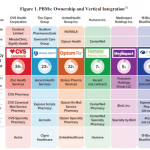Many research groups are focused on finding ways to reduce costs and improve the effectiveness of screening for small molecules that can slow down the aging process. While unbiased screening has yielded some promising results in producing interventions that mimic the effects of calorie restriction, there is still much room for improvement. The future of the longevity industry may involve a multitude of drug candidates that modestly slow aging, but true breakthroughs will likely come from therapies that can reverse aging processes.
The quest for anti-aging compounds has led to the development of a new screening method that can quickly identify substances that can slow down the aging of cells in vitro and extend lifespan in vivo. By monitoring DNA methylation changes in human cells and using the CellPopAge Clock, researchers have been able to detect compounds such as rapamycin and trametinib that show promise in delaying the aging process. This innovative approach has also led to the discovery of new anti-aging drugs such as torin2 and dactolisib (BEZ-235), which have shown positive results in reducing cellular senescence and increasing longevity in animal models.
Link: https://doi.org/10.1186/s13073-024-01349-w





